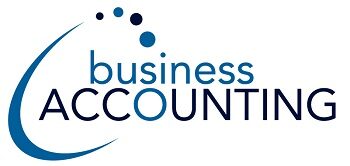In the fast-paced world of construction, managing fixed assets efficiently is crucial for optimizing productivity and profitability. From heavy machinery and equipment to vehicles and tools, construction companies handle a wide range of valuable assets. Traditionally, managing these assets manually has been a time-consuming and error-prone process. However, with the advent of advanced technology, construction companies can now streamline their workflows and enhance operational efficiency through the use of fixed asset management software.
In this article, we will explore the benefits of fixed asset tracking software made for construction industry.
Streamlining Asset Acquisition:
Acquiring and managing assets is a significant challenge for construction companies. With multiple projects, diverse teams, and varying asset requirements, keeping track of assets can be a daunting task. This is where fixed asset management software comes to the rescue. By implementing a robust tracking system, construction companies can streamline their asset acquisition process. The software allows for the centralized management of asset data, including purchase details, vendor information, warranties, and maintenance schedules. With easy access to real-time information, project managers can make informed decisions, avoid duplicate purchases, and negotiate better deals with suppliers.
Efficient Asset Tracking and Maintenance:
In the construction industry, asset tracking and maintenance are essential for ensuring smooth project execution. Fixed asset tracking software offers a comprehensive solution by providing accurate and up-to-date information on the location, condition, and availability of assets. Through the use of barcode or RFID technology, assets can be easily identified and tracked throughout their lifecycle. This enables construction companies to optimize asset utilization, minimize downtime, and improve maintenance planning. Proactive maintenance scheduling helps prevent unexpected breakdowns, reduce repair costs, and extend the lifespan of assets.
Enhanced Inventory Management:
Effective inventory management is critical in construction, as it directly impacts project timelines and costs. Construction fixed asset tracking software simplifies inventory management by providing real-time visibility into stock levels, usage patterns, and replenishment needs. By automating inventory tracking, construction companies can eliminate manual data entry and reduce the risk of errors. The software can generate automated alerts for low stock levels or expiring materials, enabling timely replenishment and avoiding project delays. This level of control and transparency over inventory enables construction companies to optimize procurement processes, reduce carrying costs, and improve cash flow.
Optimized Resource Allocation:
In construction projects, efficiently allocating resources is essential for meeting project milestones and deadlines. Fixed asset tracking software allows construction companies to gain insights into resource allocation patterns, enabling them to optimize resource utilization. By analyzing historical data, project managers can identify underutilized assets and make informed decisions on redistributing resources. This proactive approach helps maximize productivity, minimize idle time, and avoid unnecessary rental expenses. Additionally, the software provides a centralized view of asset availability, allowing project managers to allocate resources more effectively across multiple projects.
Seamless Disposal and Retirement:
Managing the disposal and retirement of assets is often overlooked but equally important as their acquisition and maintenance. Construction fixed asset tracking software simplifies the disposal process by providing a clear audit trail and documentation of asset retirement. It helps construction companies accurately track the depreciation of assets, calculate their residual value, and streamline the disposal process in compliance with regulatory requirements. By capturing disposal information within the software, companies can generate accurate financial reports and ensure compliance with tax regulations.
Maximizing Return on Investment:
One of the key goals for construction companies is to maximize their return on investment (ROI). Fixed asset tracking software plays a vital role in achieving this objective. By accurately tracking asset utilization and performance, construction companies can make data-driven decisions regarding asset deployment. They can identify assets that are underutilized or approaching the end of their useful life and make informed choices on whether to sell, retire, or reallocate them. This proactive approach helps optimize the allocation of resources and minimize unnecessary expenses, ultimately leading to a higher ROI.
Improved Compliance and Auditability:
Compliance with regulations and internal policies is crucial for construction companies to maintain transparency and credibility. Fixed asset tracking software simplifies compliance and audit processes by providing a comprehensive record of asset-related information. Construction companies can easily retrieve and present accurate documentation on asset acquisition, maintenance, and disposal during audits or compliance inspections. This level of transparency not only ensures compliance with legal and regulatory requirements but also strengthens the company’s reputation and instills trust among stakeholders.
Conclusion:
In a dynamic industry like construction, staying on top of fixed asset management is crucial for maintaining a competitive edge. Fixed asset tracking software made specifically for the construction industry offers a range of benefits, including streamlined asset acquisition, efficient tracking and maintenance, enhanced inventory management, optimized resource allocation, and seamless disposal and retirement processes. Investing in fixed asset tracking software from Foundation Software is a strategic move that enables construction companies to stay ahead in today’s rapidly evolving marketplace.



